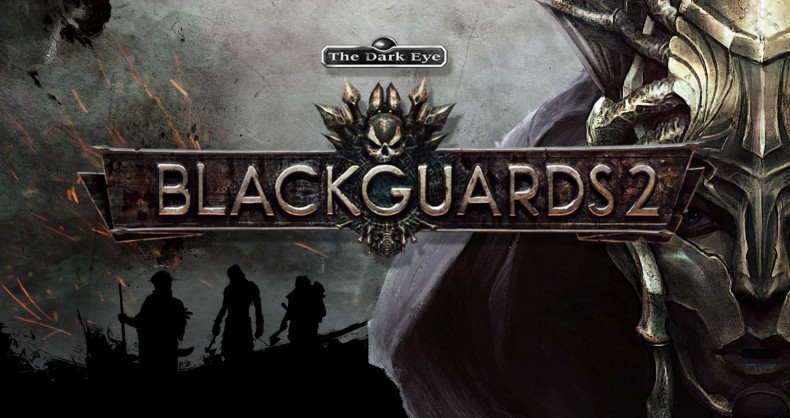
The first Blackguards was one of those games that comes along every so often that is celebrated for its difficult and unwieldy nature, even if that challenge is due primarily to sloppy rule making. Like most European role-playing games, it was often merciless with its uncanny ability to ruin your fun with stacked odds and a poor random number generator. Though it obviously had issues, many people (such as myself) enjoyed overcoming the obstacles and loved the game for its roughness, not in spite of it.
If you’ve read the review I wrote for the first Blackguards, a lot of the information would only just get repeated here. Most of the core gameplay remains the same, and there is very little of a change in the game’s more visible, uppermost layer. the hexagonal movement, the character building system and the flow from combat scenario to cinema scene is still the same as the previous game. On the surface, Blackguards 2 looks identical to its predecessor, and for that reason I almost gave up hope that Daedalic had learned their lessons from the first game.
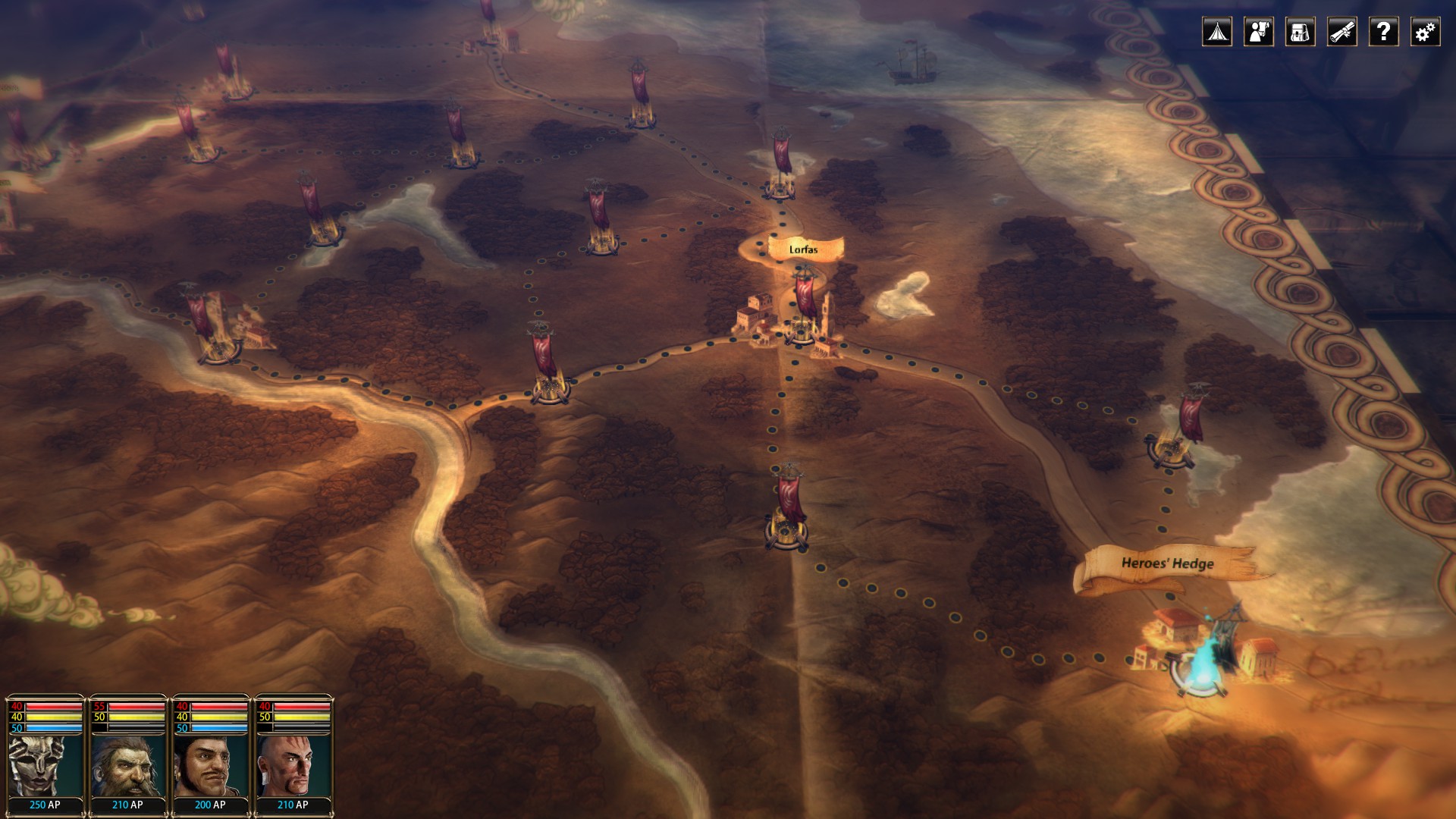
Thankfully, that isn’t the case. Though not perfect, the developers did an amazing job at improving the title’s rough edges and have made it a much better game as a result. The biggest sin the first game committed, and by far and away the most asked for change by fans, was the way hit percentage was handled.
Though a patch to the first Blackguards helped reveal a bit more of the “behind the scenes” number crunching that went into determining your character’s hit percentage when attacking an enemy, there was still a lingering issue with frequent missing and dodging. Even during flanking situations where you clearly see a 90% or greater chance to hit, you would frequently miss, causing a great deal of frustration to players used to more liberal systems of play.
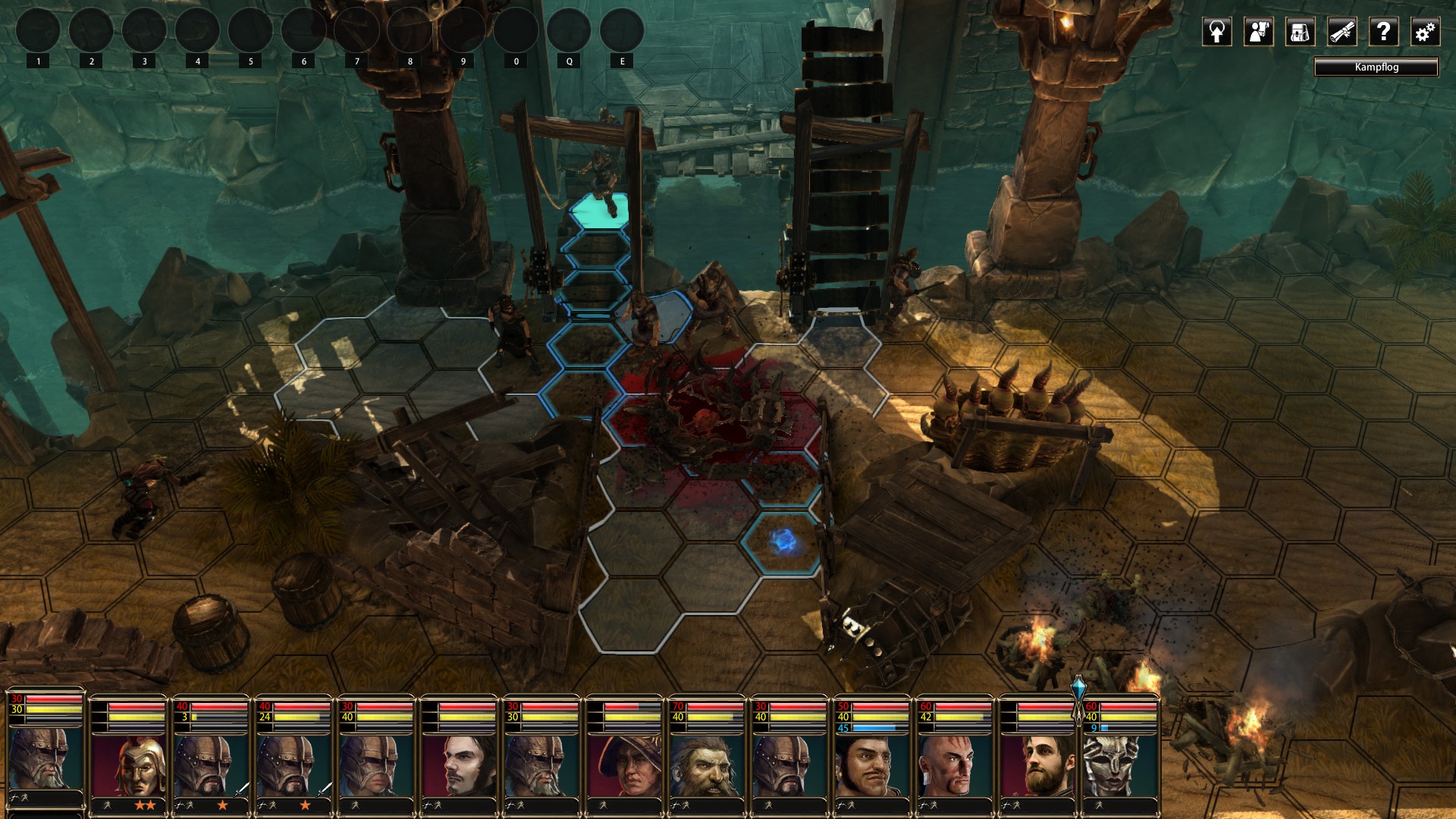
This time around, you rarely miss in situations where you are toe-to-toe with an enemy. It’s such a given that you’ll hit your enemy in fair combat that I didn’t see my first melee miss until the game’s 6th map, something unheard of in the first Blackguards. Though the easier hit percentage does make the game a little easier this time, it also means a lot fewer instances of hair pulling or keyboard smashing.
Another frequent complaint fans had about the first game was how you had to track down and remember the location of skill trainers, since not every trainer taught you every skill. This has also been remedied, since the trainer you gain access to in your camp is more than happy to train you in every skill and spell the game contains. A welcome change that makes the game far less of a slog than its predecessor.
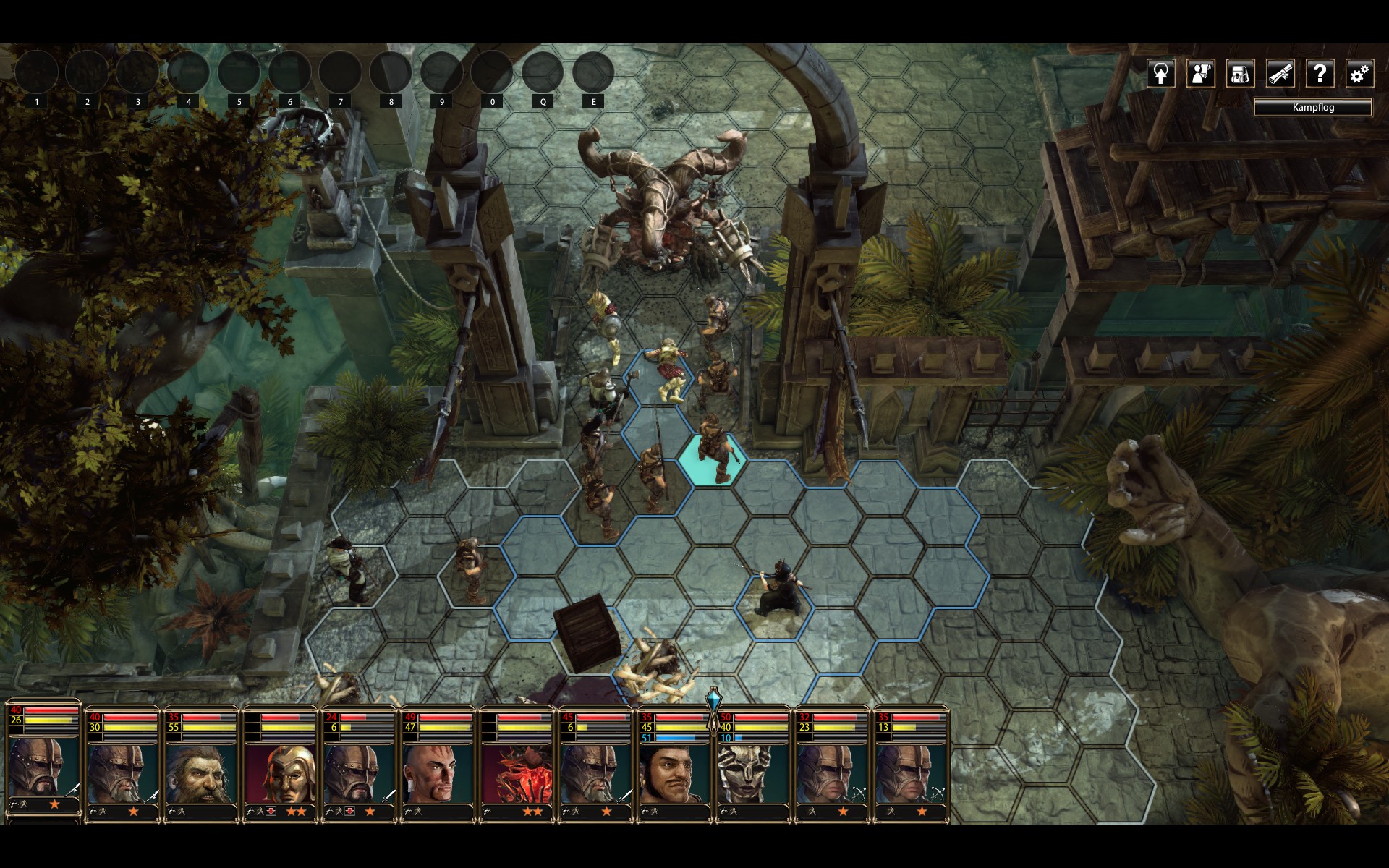
So the mathematical underpinnings of the game have been solidified, but what about the story? The first Blackguards title wasn’t the dark epic it was advertised to be and often had you kowtowing to slavers or being forced to do good deeds for people who didn’t deserve it. Many, including myself, felt the game did not facilitate the pursuit of evil nor did the main characters truly feel like “blackguards”.
This too has changed. Playing as a dishonored noblewoman by the name of Cassia, you quickly notice how dark and twisted the game is when you see her having conversations with spiders and talking to herself. Given to fits of absolute madness, Cassia decides to escape her prison and overthrow the kingdom, her hatred for the current ruler, Marwan, revealing the depths of her obsessive nature. Blinded by her ambitions, she decides to gather the most vile and despicable men in the realm to her side and includes the first game’s “heroes” among that group.
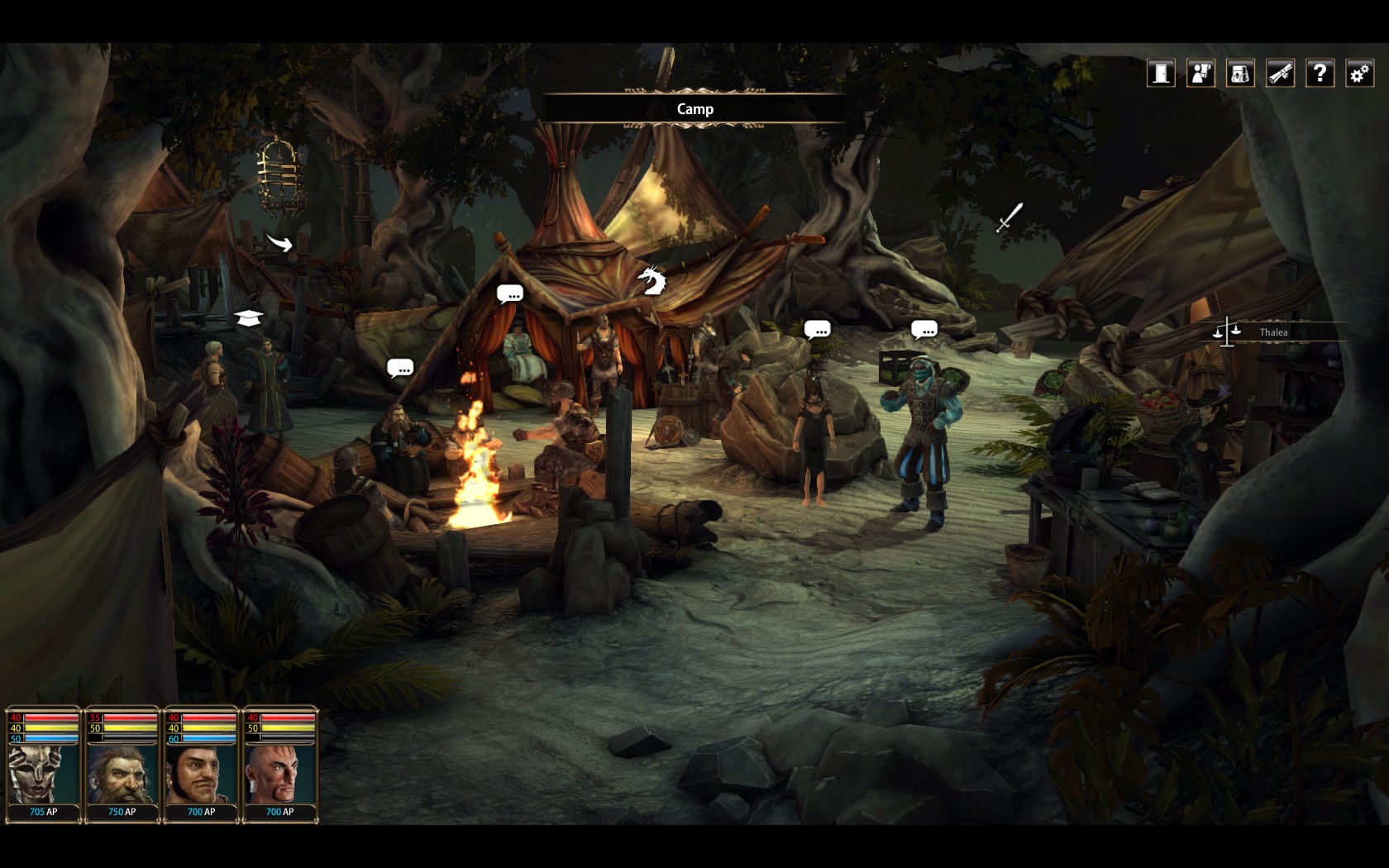
These “heroes”, the Dwarf Naurim, the mage Zurburan, and the gladiator Takate, are not the champions they once were. Zurburan is now enslaved and has had his will completely broken. Naurim has lost his fortune and is not only penniless but sought after by bounty hunters. Even Takate, the proud warrior, has gone insane and is seeking death so he can challenge the gods to a duel. to put it bluntly, everyone in the game has now “gone off the deep end” in terms of mental stability and is suitably evil for a game that is called Blackguards.
This new “us against the empire” aspect to the story is what drives the gameplay forward, with your hastily constructed war party beginning a campaign to conquer territory and retain it against a much more powerful military force.
What this translates to is a slow crawl through the game’s map, taking over castles and forts and then defending them against ever more powerful and desperate foes. The story moves along a bit faster than the previous game, with illustrated scenes playing between battles that do a good job in showing off Cassia’s insanity and lack of compassion in some truly disturbing ways.
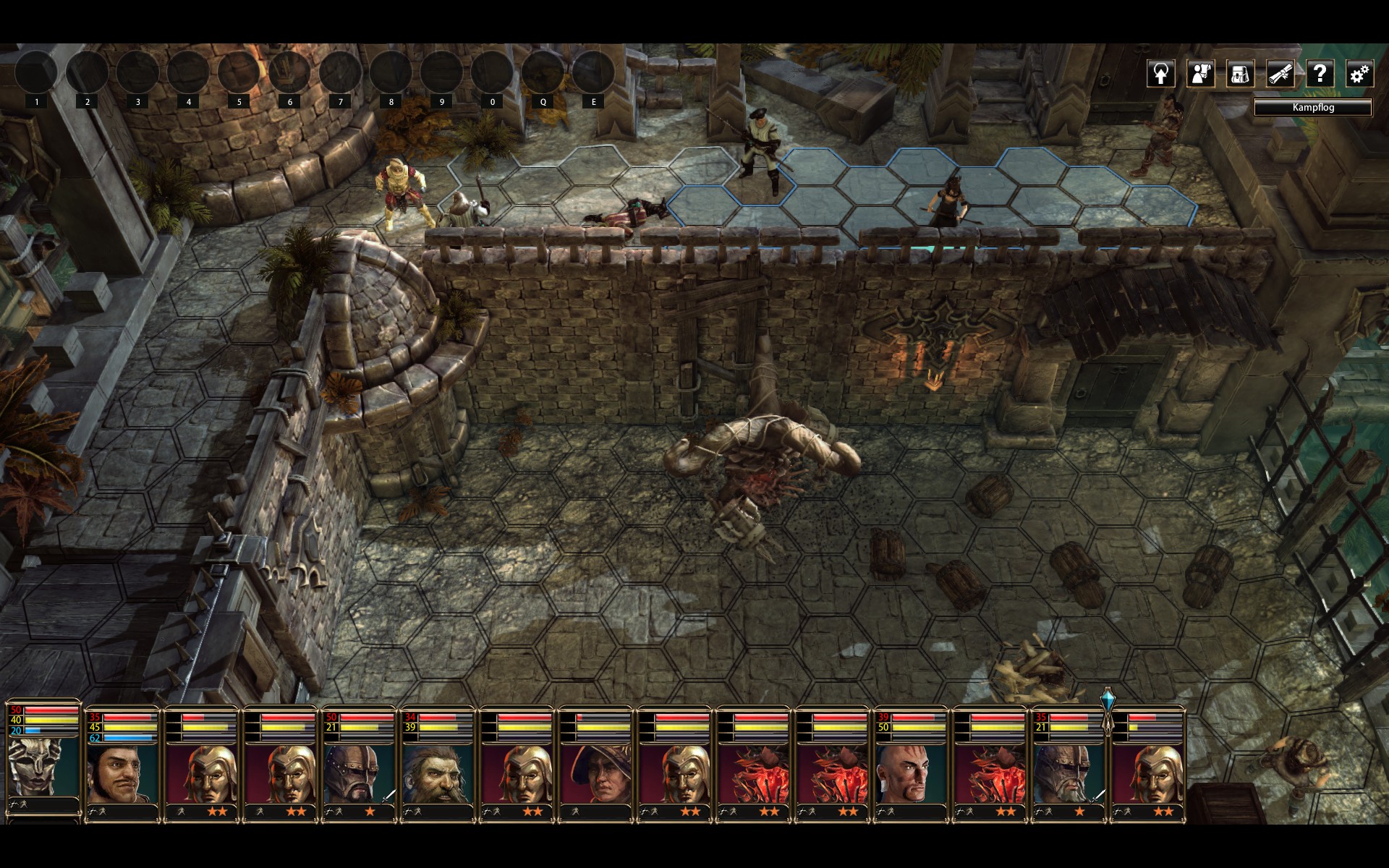
Much of this story plays out in your party’s camp screen, which is not only a place where you can chat with your “partners”, but also where the choices you make are made. Imagine capturing a major character in the game and needing information from them, so you go to the prison section of the camp screen and attempt to interrogate them. Pass your conversation checks and you may reveal secret information that aids you in the next battle.
Fail and you are given the chance to execute the prisoner. What happens if you kill them? Will people respect you? Will they accept your leadership? If you let the captive go, will they come back and ambush you? Or will they come to your aid? Though the game doesn’t have the kind of non-linearity you’d find in Fallout or Planescape, it does have much more than its predecessor.
Overall, the idea of conquering land and maintaining it are fun…but it can be awfully tedious at times. When a fight over a previously claimed territory breaks out, it occurs in the same map you cleared to conquer said territory. This means that you’ll often be forced to go through the same map time and time again.
This hurts since, as is the problem with most turn based strategy games, combat is slow and laborious. Constantly replaying the same map with the same nameless, faceless troops (your main characters do not fight in defense of claimed territory) feels more like a chore than an enjoyable game feature, and it tends to bring the game down with it.
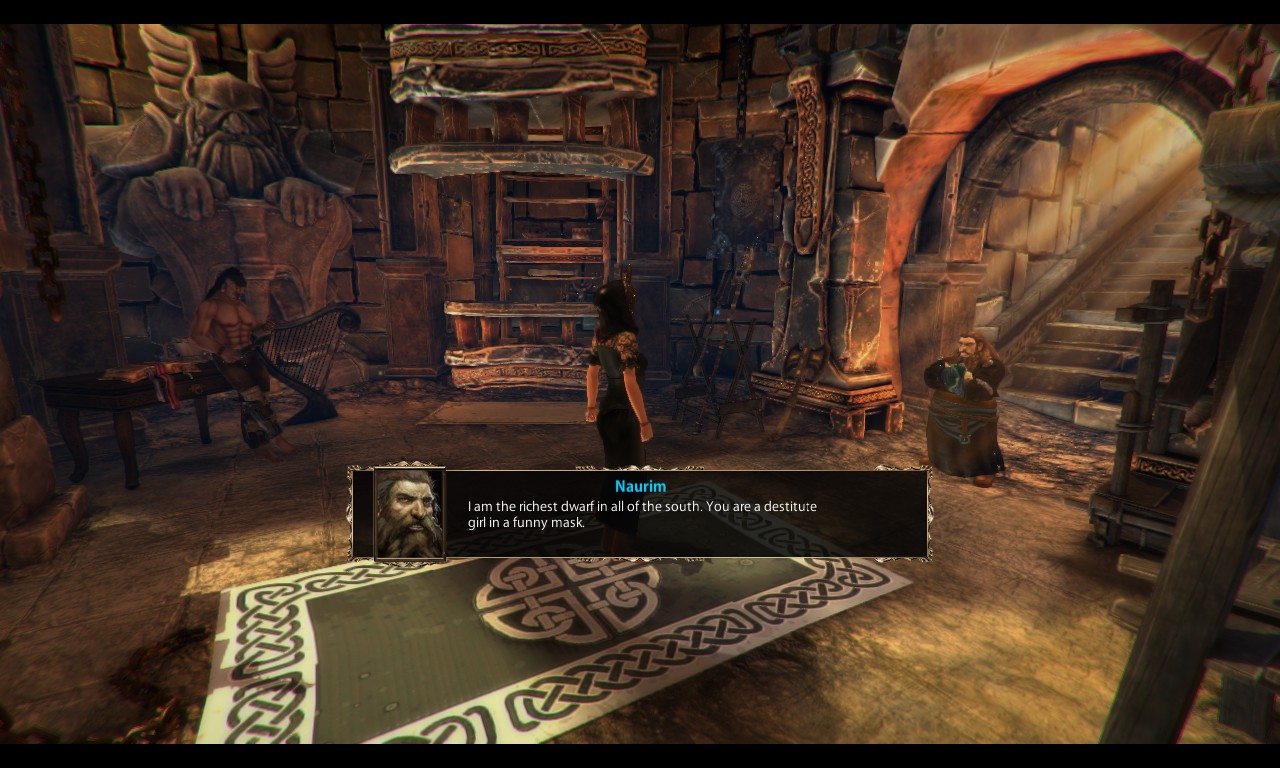
While the new maps the game has are much bigger and offer more opportunity for interaction and trap-laying, it’s a double edged sword. Being bigger means they contain more enemies and require more turns of combat to reach the other side. Due in large part to this, combat is a much bigger time investment than the previous game and requires longer periods of play. Some of the game’s bigger fights can take a half an hour to complete, which for me was about 10-15 minutes too long.
In spite of these small gripes, Blackguards 2 is a much more complete and better-playing game than its predecessor and will no doubt please all of those who loved the first. Unfortunately (or fortunately, if you are a hardcore fan like me), the game has not been streamlined enough to attract casual CRPG fans and will still be far too complex and challenging for those not accustomed to the difficulty of a dyed-in-the-wool European game like Blackguards.
Blackguards 2 was reviewed using a code provided by Daedalic Entertainment. You can find additional information about Niche Gamer’s review/ethics policy here.
The Verdict: 8
The Good:
- Darker story
- Better character growth
- Combat is much less of a hassle
The Bad:
- Territory defense can be tedious and repetitive
- Long battles
- Mercenary-only fights are underwhelming